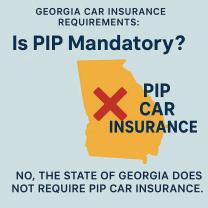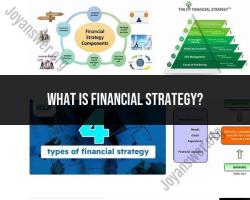Are payday loans bad?
Payday loans, like many financial products, have both pros and cons. Whether payday loans are considered "bad" depends on individual circumstances, responsible borrowing, and the specific terms of the loan. Here are some of the pros and cons of payday loans to help you make an informed decision:
Pros of Payday Loans:
Accessibility: Payday loans are relatively easy to qualify for, especially compared to traditional bank loans. Lenders typically require proof of income and an active bank account.
Quick Access to Funds: Payday loans are designed for emergency expenses, and they provide fast access to cash when you need it most. Approval and funding can often occur on the same day.
No Credit Check: Payday lenders usually don't conduct a traditional credit check, making them an option for individuals with poor credit or no credit history.
Convenience: Payday loans are available online and through storefronts, making them convenient for many borrowers.
Short-Term Solution: Payday loans are designed for short-term needs. They can help bridge financial gaps until your next paycheck.
Flexibility: Borrowers can use payday loan funds for various purposes, including unexpected bills, medical expenses, or car repairs.
Cons of Payday Loans:
High Interest Rates: Payday loans typically come with extremely high annual percentage rates (APRs), making them one of the most expensive forms of borrowing. The high interest rates can lead to a cycle of debt.
Risk of Debt Cycle: Due to the high costs, many borrowers find themselves unable to repay the full loan amount on their next payday. This leads to rolling over the loan or taking out a new loan, resulting in a cycle of debt.
Predatory Lending Practices: Some payday lenders have been criticized for engaging in predatory lending practices, including aggressive marketing, hidden fees, and misleading terms.
Financial Stress: Borrowing from payday lenders can lead to increased financial stress and anxiety, especially when borrowers struggle to repay the loan.
Impact on Credit: While payday lenders typically don't report to credit bureaus, unpaid payday loans can still negatively impact your credit if the lender sells the debt to a collections agency.
Lack of Financial Education: Payday loan borrowers often have limited financial education or access to better borrowing options, which can lead them to turn to payday loans in desperation.
Regulatory Challenges: Payday loans are subject to varying regulations in different states and countries. Some areas have imposed stricter regulations, while others have few or no restrictions, making it difficult for borrowers to understand their rights and protections.
In conclusion, whether payday loans are "bad" depends on your individual financial situation and the choices you make. While they can provide quick cash for emergencies, their high costs and the risk of falling into a debt cycle make them a risky borrowing option. If you are considering a payday loan, it's important to carefully read and understand the terms, explore alternative sources of funds, and, if possible, seek financial advice to make the best decision for your situation.
Are Payday Loans Bad? Evaluating the Risks and Benefits
Payday loans are short-term loans that are typically due on the borrower's next payday. They are often marketed as a quick and easy way to get cash when you need it, but they come with a number of risks and drawbacks.
Risks of payday loans:
- High interest rates: Payday loans typically have very high interest rates, often upwards of 400%. This means that borrowers can end up paying much more than they borrowed in interest.
- Short repayment terms: Payday loans are typically due on the borrower's next payday, which can be a very tight deadline for many people. If a borrower is unable to repay the loan on time, they may have to roll over the loan, which will add even more interest and fees.
- Debt trap: Many borrowers who take out payday loans find themselves trapped in a cycle of debt, where they have to take out new loans to repay old loans. This can lead to serious financial problems, including bankruptcy.
Benefits of payday loans:
- Quick and easy access to cash: Payday loans are typically very easy to get, and borrowers can often receive the money they need within 24 hours.
- No credit check: Payday lenders do not typically check borrowers' credit scores, so people with poor credit can still qualify for a loan.
- Can be used for any purpose: Payday loans can be used for any purpose, such as paying bills, covering unexpected expenses, or making a purchase.
The Controversy Surrounding Payday Loans
Payday loans are a controversial topic, with many people arguing that they are predatory and harmful to consumers. Critics of payday loans argue that the high interest rates and short repayment terms make it difficult for borrowers to repay their loans, and that this can lead to serious financial problems.
Supporters of payday loans argue that they provide a valuable service to consumers who need quick access to cash and who may not be able to qualify for a traditional loan. They also argue that payday loans are regulated by the government, and that there are laws in place to protect consumers from predatory lending practices.
Responsible Borrowing and Alternatives to Payday Loans
If you are considering taking out a payday loan, it is important to borrow responsibly and to explore alternative options. Here are some tips:
- Shop around for the best interest rates and terms.
- Only borrow what you can afford to repay on your next payday.
- Be aware of the fees associated with payday loans.
- Have a plan for how you will repay the loan.
There are a number of alternatives to payday loans, such as:
- Cash advance apps: Cash advance apps allow you to borrow a small amount of money from your next paycheck. The interest rates and fees are typically lower than payday loans.
- Payday loan alternatives: There are a number of organizations that offer payday loan alternatives, such as credit unions and community banks. These loans typically have lower interest rates and longer repayment terms than payday loans.
- Government assistance programs: There are a number of government assistance programs that can help you with financial difficulties, such as food stamps and unemployment benefits.
Consumer Protection and Regulations in Payday Lending
There are a number of consumer protection laws and regulations in place to protect consumers from predatory lending practices. For example, the Consumer Financial Protection Bureau (CFPB) has a number of rules in place to regulate payday loans.
The CFPB requires payday lenders to verify a borrower's income and expenses before making a loan. Lenders must also provide borrowers with clear information about the terms of the loan, including the interest rate, fees, and repayment schedule.
Making Informed Decisions About Payday Loans
If you are considering taking out a payday loan, it is important to make an informed decision. Weigh the risks and benefits carefully, and explore alternative options. If you do decide to take out a payday loan, be sure to borrow responsibly and to have a plan for how you will repay the loan.
Conclusion
Payday loans can be a helpful option for people who need quick access to cash, but they are important to use responsibly. Be aware of the risks and fees associated with payday loans, and only borrow what you can afford to repay.











